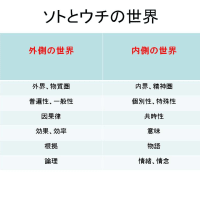日刊工業新聞に拙論「アフリカに広がる5S・改善~日本が忘れた有効性伝搬~」を寄稿しました。
昨年、スリランカ、そして今年2-3月にコンゴ民主共和国を訪れて5S-KAIZEN-TQMの技術指導、フィールド調査をしました。その時に得た知見などをまとめています。
***
5S-KAIZEN-TQM spread to Asia and Africa: From Japan to Global Health Services
Stunning Africa
Amazing sceneries have been spreading out in the African continent. 5S-KAIZEN-TQM (Total Quality Management) originating in the Japanese industry is proliferating rapidly even to the hinterland of Africa. But it is the field of health services not in manufacturing. This movement has covered 46 countries in Africa, impacting on directly or indirectly the human life of 420 million people, accounting almost half of the population of 820 million.
Through 2011 to 2012 I had the opportunities to visit Sri Lanka and the Democratic Republic of the Congo to provide consultancy on 5S-KAIZEN-TQM based on the requests from JICA and National Center of Global Health and Medicine. Consequently I have found many stimulating phenomena involved in the movement while teaching the method to many people.
Participation and Excitement
5S means such basic intervention as set, sort, shine, standardize, and sustain. KAIZEN is “make something better” or improvement. Some may say that 5S-KAIZEN is outdated here in Japan. But I would say that KAIZEN-5S bears universality beyond the country boarders and industrial sectors.
I tell you why. The systemic changes brought about by the movement have gained enthusiastic support from the minister down to the staff members at hospitals and clinics in countryside. African people have invented "5S-KAIZEN dance" and "5S-KAIZEN song" to encourage themselves to carry on this movement. Here a question is raised. Why are African people so enthusiastic about doing "5S-KAIZEN"? There are three reasons.
(1) Participation
Like other disciplines, management ethos has been excluded in the gate keeping forefront of health services. Even stealing medicine or equipment is not rare in African countries. But this approach has the effect of changing passive to proactive mind-set.
In particular, everyone can do the first 5Ss or sort, set and shine easily and assure the outcomes. In this sense the participation in 5S-Kaizen sets the easy but stead start line to begin management in Africa.
(2) Intrinsic Reward System
Most of the management methodologies and methods if any currently practiced in African countries have come from the West which exploited the continent for years. In those practices they try to give reward for individuals and organizations based on meritocracy.
They plan in advance the acted-out results of individuals and organizations that should be achieved. When those are achieved, the incentive value including monetary or subsidies, are to be awarded. For those who are sick and tired of such ways, emotional welling up from the inner sense of fulfillment and a sense of accomplishment mean intrinsic reward. 5S-KAIZEN brings about intrinsic reward.
(3) Cycle of Solidarity
BA, a Japanese word, means a place or field of associated with human activities. What supports and integrates such BA as workplace and community is the collective sense of solidarity. When such sense of solidarity is enhanced through planning, doing, checking and doing actions based on 5S-KAIZEN, people can assure and even enrich solidarity at BA.
Thus 5S-KAIZEN realizes solidarity in any BA of human activity. This kind of approach is attracting attention from those who practice action-research methodology in soft systems methodologies.
Service co-creation of the Public Sphere
The emergence of innovation, by and large, has shifted its central field from production per se, to the process of production, finally to services field. Whatever emerges, however, it depends on the consciousness of people concerned.
The fact 5S-KAIZEN-TQM, originating in the Japanese production industry, transcended to Sri Lanka and then to African countries and manifested social impact in such countries suggests that the movement is evident innovation. 5S-KAIZEN-TQM has been accepted and shared by so many Asian and African people as effective methodologies in work environment improvement, change management and health policy.
The aforesaid findings would be meaningful particularly when it comes to the issues relating with global contribution of health services management. 5S-KAIZEN-TQM plays salient roles not only in market where product and money are exchanged, but also in public sphere where services are co-created by grass-root people especially in health services.
For decades Japan has been picking various western management methodologies including reengineering, CRM, pay-for-performance, balanced score card to name just a few. But do they feel happiness in their jobs? Are they really intrinsically motivated? Are they full of sense of achievement? If not, the Japanese may have benefit from looking at the lessons from its counterparts in Asia and Africa.





















※コメント投稿者のブログIDはブログ作成者のみに通知されます